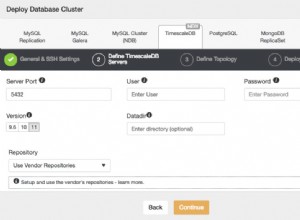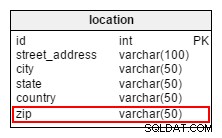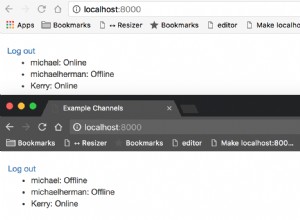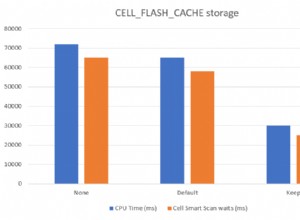Esto funciona:
WITH tbl(p_xml) AS ( -- CTE just to provide test table with xml value
SELECT '<promotions xmlns="http://www.demandware.com/xml/impex/promotion/2008-01-31">
<campaign campaign-id="2013-1st-semester-jet-giveaways">
<description>2013 1st Semester Jet Giveaways</description>
<enabled-flag>true</enabled-flag>
<start-date>2013-01-01T05:00:00.000Z</start-date>
<end-date>2013-07-01T04:00:00.000Z</end-date>
<customer-groups>
<customer-group group-id="Everyone"/>
</customer-groups>
</campaign>
</promotions>'::xml
) -- end of CTE, the rest is the solution
SELECT xpath('/n:promotions/n:campaign/n:description/text()', p_xml
, '{{n,http://www.demandware.com/xml/impex/promotion/2008-01-31}}')
FROM tbl;
Devoluciones:
{"2013 1st Semester Jet Giveaways"}
Observe cómo asigno el alias de espacio de nombres n para su espacio de nombres en el tercer argumento de xpath()
y utilícelo en todos los niveles del xpath.
Si elimina el espacio de nombres XML del documento, todo se vuelve mucho más simple:
WITH tbl(p_xml) AS ( -- not the missing namespace below
SELECT '<promotions>
<campaign campaign-id="2013-1st-semester-jet-giveaways">
<description>2013 1st Semester Jet Giveaways</description>
<enabled-flag>true</enabled-flag>
<start-date>2013-01-01T05:00:00.000Z</start-date>
<end-date>2013-07-01T04:00:00.000Z</end-date>
<customer-groups>
<customer-group group-id="Everyone"/>
</customer-groups>
</campaign>
</promotions>'::xml
)
SELECT xpath('/promotions/campaign/description/text()', p_xml)
FROM tbl;
<rant> ¿Soy solo yo o todos están contentos con json y jsonb
, por lo que no tenemos que lidiar con XML.</rant>




